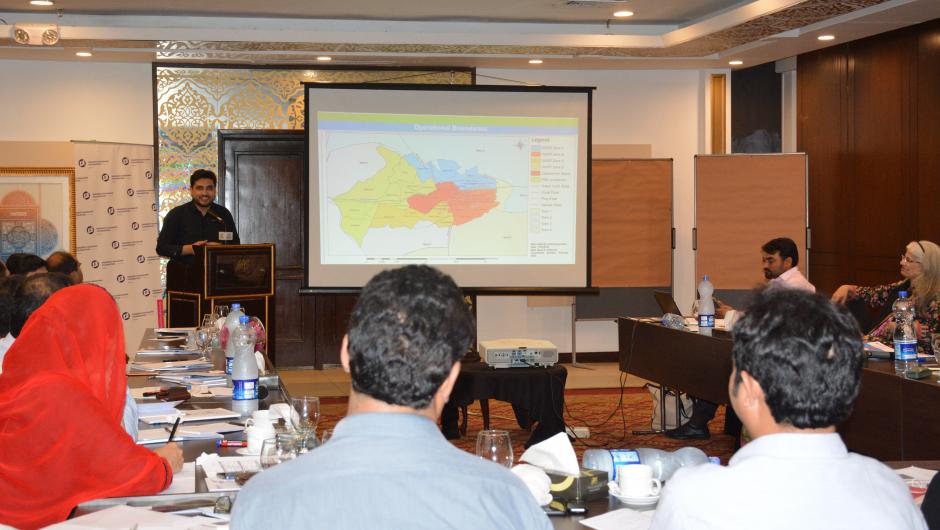Innovative Ways to Fight ‘Plastic War’

Hassan Ali was on Facebook LIVE, capturing a cleanup of a plastic-filled canal that runs right through the heart of Peshawar. Sweating in the monsoon heat, he focused his camera on the canal.
“You can find discarded blankets, pillows, clothes and almost everything in this canal! Four feet of layers of garbage, mostly plastic bags, cover this water channel. You can’t even see water flowing beneath these layers of plastic waste,” he said in a lamenting tone.
“This is the third time in the last three months that we have brought excavators and cleaned up the choked canals,” Ali added as he supervised the progress of the canal cleanup.
This cleaning mission is organized by the Water and Sanitation Services of Peshawar (WSSP), a local public-private partnership water utility in the capital of Khyber Pakhtunkhwa, Pakistan.
Ali, Communication and Media Manager WSSP, is not alone in this “plastic war.” Plastic waste, especially single-use plastic bags (also known as “shoppers” in Pakistan) is increasingly becoming a hot debate globally because its disposal is cumbersome. Plastic bags take centuries to decompose. They float in water and fly in the wind thus reaching every corner of the world, even to remote places such as the bottom of the Mariana Trench.
Innovations
Youth in Pakistan has grown up predominantly using plastic bags and containers for shopping. Thus, innovations such as container management systems, the use of technology based on the Internet of Things (IoT), water quality testing, and waste segregation systems are considered new solutions to the age-old problem of keeping cities clean.
The WSSP is using innovative technology to ensure Peshawar is clean and has water which is safe for drinking as well as for agriculture.
“I remember that in the 1980s, mountain springs and water ways in Margallah Hills and Islamabad were places where local people would go and catch fish. Now we can only catch wrappers, juice bottles and plastic bags,” said Dr. Rakhshinda Perveen.
Dr. Perveen has been a long-time resident of Islamabad. This story is not limited to one city in Pakistan. Other canals and waterways in big urban centres like Karachi, Rawalpindi, Faisalabad and Lahore face similar issues.
The international standard is one-city-one-utility for water supply and waste management
Confusion in government
The issue of keeping densely populated cities like Peshawar clean is a great challenge also because of the confusion of roles amongst various government departments.
"The international standard is one-city-one-utility for water supply and waste management,” Ali explained to journalists and government officials at a workshop in Peshawar. “Two different departments can also work. In Peshawar, water supply is done by four different departments namely the Water and Sanitation Services Peshawar, Cantonment Board, Peshawar Development Authority & Tehsil Municipal Authority.”
The workshop, titled “Clean & Green Pakistan: Linkages with journalists and government officials,” was organized by the Friedrich Naumann Foundation for Freedom (FNF) in Islamabad, as part of its work on climate change.
One key factor that bodes well for Pakistan, however, is that, for the first time, a government has a green agenda, making it a top-down national movement. Prime Minister Imran Khan regularly urges citizens in his televised speeches to keep Pakistan clean and green as a means to enhance tourism, especially in the northern areas of Karakoram.
The Ministry of Climate Change is a torch bearer of the green agenda of the current government. Recently, under the campaign #CleanGreenPakistan, a ban has been imposed on single-use plastic bags in Islamabad, starting August 14, the Independence Day of Pakistan, with the slogan #FreedomfromPlastic.
For Ali, the regulation against the use of plastic is just one part of the equation. The change will come only when people change their habits and take responsibility for reducing, recycling and reusing their waste.